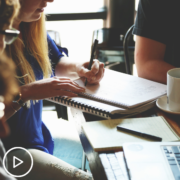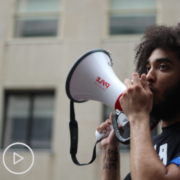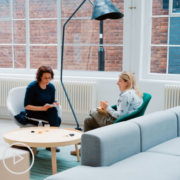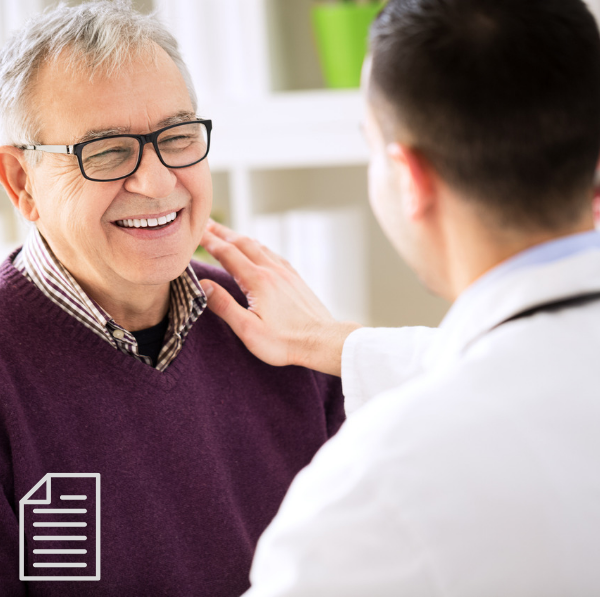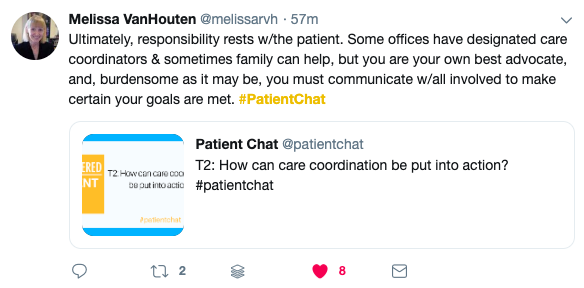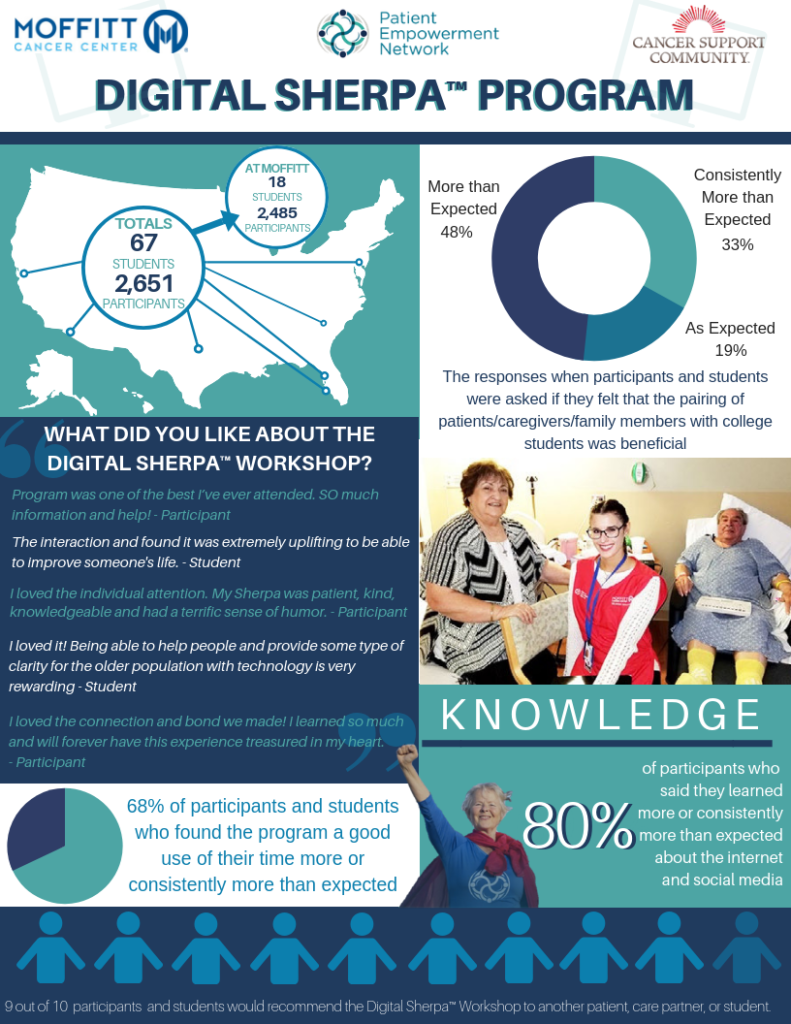The World Health Organization has called chronic conditions ‘the health care challenge of this century’. According to the latest figures released by the Centers For Disease Control and Prevention about half of all adults have one or more chronic health conditions; and one of four adults have two or more chronic health conditions. Long-term diseases, such as heart disease, stroke, cancer, type 2 diabetes, and obesity are the leading cause of mortality worldwide and are estimated to be the leading cause of disability by 2020. A landmark paper, published on 9 July 2016 in Nature Reviews, reports the prevalence of global diabetes has been seriously underestimated by at least 25 per cent.
These figures are alarming, but what is equally alarming is that despite the prevalence and seriousness of the situation, our medical system is not structured to adequately respond to chronic illness. Our current health systems are designed to prevent, diagnose and treat acute medical conditions. The problem is not that people with chronic diseases do not receive care; rather, the acute care model ignores the fundamentally different approach that is needed to care for people with chronic conditions. Furthermore, this model leaves little room for the psycho-social dimensions of chronic illness; it addresses parts of diseases or small sub-parts of the body, but it does not address the person in a holistic way.
How can we begin to address this disconnect in a healthcare system which cares for pieces of people, rather than the whole person?
I believe the answer lies in adopting a person-centered approach to the care of the patient (while you may find the term patient-centered care is more widely-used, I prefer to use the more all-encompassing person-centered care as it focusses on the whole person). Describing the person-centered care approach, Dr Ronald Epstein, MD and Dr Richard Street, PhD characterize it as one in which “patients are known as persons in the context of their own social worlds, listened to, informed, respected, and involved in their care.”
Providing care that is respectful of and responsive to individual patient preferences, needs, and values, and ensuring that patient values guide all clinical decisions, was recognized as a dimension of high-quality health care in the 2001 Institute of Medicine (IOM) report Crossing The Quality Chasm; An New Health System for The 21st Century as one of six quality aims for improving care. The IOM report drew on research conducted in 1993 by the Picker Institute in conjunction with the Harvard School of Medicine 1 which identified eight dimensions of patient-centered care.
These eight principles provide a roadmap for a person-centered approach to the care of chronic illness.
1. Respect for patients values, preferences and expressed needs
A fundamental tenet of person-centered care concerns putting people and their families at the center of clinical decisions. Each patient brings his/her own unique preferences, concerns and expectations to a clinical encounter and these values should be integrated into decisions if they are to serve the patient. Patients have a right to be part of the decision making process. This is best achieved through the model of shared decision making, the conversation that happens between a patient and their health professional to reach a healthcare choice together. At the very heart of shared decision making is the recognition that healthcare providers and patients bring different but equally important forms of expertise to the decision-making process. Patients and their families will bring their experience of living with a disease, their social circumstances and preferences. This is particularly relevant in chronic health conditions where the patient may have many years of experience of their symptoms and responses to treatments.
2. Co-ordination and integration of care
Research shows that patients highly value coordination of their care, seeing it as an important component of overall quality, especially when they have chronic health problems and complex needs. The reality however, is a patient with a chronic condition often receives care from multiple healthcare providers who may work independently from each other. This fragmented system affects the follow-through and co-ordination of care patients receive.
3. Addressing patients’ information, communication and education needs
Patients differ in their views about how much information they want. In some cases, patients want a lot of information and in other cases patients may delegate decision making entirely to healthcare professionals. The goal of patient-centeredness, according to the IOM report, is to customize information to the specific needs of each individual; that is, to modify the care to respond to the person, not the person to the care. Information needs to be much more easily available and understandable and a concerted effort made to strengthen health literacy for all patients.
4. Physical comfort
Attention to physical comfort implies timely, tailored and expert management of symptoms such as pain or other discomfort. Person-centered pain management takes into account not just the physical aspect of pain, but also the psychological, social, and spiritual aspects of health and disease.
5. Emotional support and alleviation of fear and anxiety
Fear and anxiety associated with illness can be as debilitating as the physical effects. As defined by the Institute of Medicine, patient-centered care attends to the anxiety that accompanies all injury and illness, whether due to uncertainty, fear of pain, disability or disfigurement, loneliness, financial impact, or the effect of illness on one’s family. Chronic illness affects every aspect of our lives and patients face a range of stressors from medical management of our illness, to dealing with changes in family life, work life or student life. The psychological effects of chronic illness can be profound. Individuals with chronic illness are more likely to be depressed, especially those who experience greater levels of pain and disability. In a paper published in the Western Journal of Medicine authors Jane Turner and Brian Kelly examined the emotional dimensions of chronic disease. They concluded that:
- The emotional dimensions of chronic conditions are often overlooked when medical care is considered
- Doctors may be well equipped for the biomedical aspects of care but not for the challenges of understanding the psychological, social, and cultural dimensions of illness and health
- Clinicians can play an important part in helping their patients to maintain healthy coping skills
6. Involvement of family and friends
The sixth dimension of patient-centered care recognizes the key role of families and friends in supporting and caring for a chronically ill person. It focuses on accommodating family and friends on whom patients may rely, involving them as appropriate in decision making, supporting them as caregivers, making them welcome and comfortable in the care delivery setting, and recognizing their needs and contributions.
7. Continuity and transition
Every episode of care involves various individuals and oftentimes multiple transfers between different health care settings. Poor communication during transitions leads to increased rates in hospital readmissions, medical errors, and poor health outcomes. Most patients and family caregivers are not encouraged to play an active role when a transition in their care occurs, even though they are often the only constants in the transition.
8. Access to care
Patients need to know they can access care when it is needed. In interviews conducted by Picker, patients indicated the following areas were of importance:
- Access to the location of hospitals, clinics and physician offices
- Availability of transportation
- Ease of scheduling appointments
- Availability of appointments when needed
- Accessibility to specialists or specialty services when a referral is made
- Clear instructions provided on when and how to get referrals.
Ideally patients should have access to the right service at the right place at the right time. This may take place outside the traditional healthcare setting, as Meredith Dezutter, who applies human-centered design to improve the lives of patients, caregivers and providers through her work at Mayo Clinic’s Center for Innovation, points to: “It may mean making medical knowledge more accessible and supporting local care decisions, offering online support or video appointments or even connecting the patient with resources in his or her community.”
For too long, patients have been grouped into a single homogenized category, and treatment approaches to care generalized. This ignores the reality of chronic illness which presents in different ways. Treatment of chronic conditions requires an individualized, multifaceted approach. Care is enhanced when there is sensitivity for the context of the illness experience. Person-centered care is a method of care that treats the patient as a person within the context of their lives, family and community support, mental and emotional state, beliefs and preferences. It is based on good communication and a partnership approach between clinician and patient with the aim of improving patient self-management, care outcomes and satisfaction. PhD student and health researcher, Doro Bechinger-English, who was diagnosed with breast cancer in 2010, believes that person-centered care facilitates a closer connection between a patient and healthcare provider. “The healthcare professional shows their presence by connecting with me as a patient and a person”, she says. “Person-centered care also means being open to my values, anxieties, concerns and preferences however small or alien they seem to be.”
Redesigning our healthcare systems to adopt a patient-centered perspective is not without its challenges in an acute care system that is primarily reactive, but ultimately doesn’t every patient deserve to be treated in a system in which he or she feels known, respected, involved, engaged, and knowledgeable about their own care?
1 Gerteis M, Edgman-Levitan S, Daley J, Delbanco T. Through the patient’s eyes: understanding and promoting patient-centered care. San Fransisco: Jossey-Bass; 1993
A Stanford Medicine X e-Patient scholar, Marie Ennis O’Connor is an internationally recognized keynote speaker, writer, and consultant on global trends in patient engagement, digital health and participatory medicine. Marie’s work is informed by her passion for embedding the patient voice at the heart of healthcare values. She writes about the experience of transitioning from breast cancer patient to advocate on her award-winning blog Journeying Beyond Breast Cancer.


